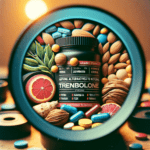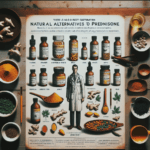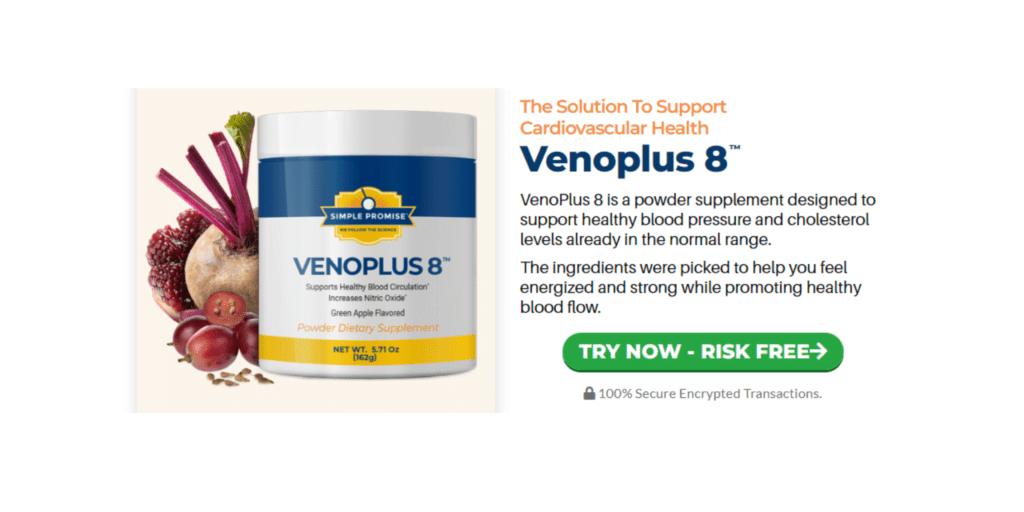Natural Nitric Oxide Boosters
Understanding Nitric Oxide and Its Role
Nitric oxide is a key molecule in our bodies that helps blood vessels relax and widen. This process, called vasodilation, improves blood flow throughout the body. For athletes and gym-goers, better blood flow can mean bigger muscle pumps and improved performance. You can’t take nitric oxide directly. Instead, we use natural boosters that help our bodies make more of it.
Think of nitric oxide like a traffic controller for your blood vessels. When there’s more of it, your blood can flow more freely, delivering oxygen and nutrients to your muscles faster. This is why many people use nitric oxide boosters before workouts. They’re hoping to get that extra edge – better endurance, quicker recovery, and those sleeve-busting pumps everyone talks about.

You might be wondering, “How do I get more nitric oxide in my system?” That’s where natural boosters come in. These are supplements and foods that contain ingredients your body uses to produce nitric oxide. It’s like giving your body the building blocks it needs to make more of this helpful molecule. The effectiveness of these boosters can vary from person to person, and their impact may be influenced by factors such as diet, exercise intensity, and individual physiology.
Key Points on Nitric Oxide
- Nitric oxide acts as a vasodilator, improving blood flow by relaxing blood vessel walls.
- Natural boosters include L-arginine, L-citrulline, and beetroot extract.
- Benefits include improved blood flow, enhanced exercise performance, and blood pressure regulation.
- Safety considerations: may interact with blood pressure medications; potential side effects include stomach discomfort and headaches.
- Effective dosages: L-citrulline (3-8g/day), L-arginine (3-6g/day), beetroot extract (500mg+ per day).
- Look for products that have undergone third-party testing to ensure purity and potency.
Natural Ingredients That Boost Nitric Oxide
Let’s talk about the main natural nitric oxide boosters. First up is L-arginine. This amino acid is like the granddaddy of nitric oxide supplements. Your body turns L-arginine directly into nitric oxide. It’s been around for ages and lots of people swear by it. Next, we’ve got L-citrulline. This one’s a bit sneaky – your body actually converts it to L-arginine first, and then into nitric oxide. Some folks find it works better than taking L-arginine directly.
Last but not least, there’s beetroot extract. Yep, the same stuff that might stain your cutting board can also pump up your muscles. Beetroot is packed with nitrates, which your body turns into nitric oxide. It’s become super popular lately, especially with endurance athletes. These ingredients aren’t magic pills, but they can give your body the tools it needs to make more nitric oxide naturally.
Natural muscle building supplements like these nitric oxide boosters are part of a bigger picture. They work alongside your diet and training to help you reach your goals. Just remember, they’re not a replacement for hard work and good nutrition – they’re more like a little boost to help you along the way.
In addition to these popular ingredients, there are other natural compounds that may support nitric oxide production. For example, garlic contains allicin, which has been shown to increase nitric oxide levels. Pomegranate juice is rich in polyphenols that can enhance nitric oxide synthesis and bioavailability. Green tea, with its high content of catechins, may also contribute to improved nitric oxide function. When considering nitric oxide boosters, it’s worth exploring a variety of natural sources to find what works best for your body and goals.
Benefits of Nitric Oxide Boosters
So, what’s in it for you if you start using nitric oxide boosters? Well, the big one is improved blood flow. This means your muscles get more oxygen and nutrients, which can lead to better performance during your workouts. You might find you can push a bit harder or last a little longer before fatigue sets in. For bodybuilders and strength athletes, this could translate to more reps or heavier lifts.
Another potential perk is faster recovery. With better blood flow, your muscles might bounce back quicker after a tough session. This could mean less soreness and more consistent training. Some people also report better pumps – that feeling of your muscles swelling up during a workout. While pumps might not directly build muscle, they sure feel good and can be a sign that blood is flowing to the right places.
It’s not just about the gym, though. Some folks use nitric oxide boosters to help with blood pressure. By relaxing blood vessels, these supplements might help keep your blood pressure in a healthy range. Of course, you should always chat with a doctor before using any supplement for health reasons. They can help you figure out if it’s right for you and how it might fit into your overall health plan.
Beyond these commonly cited benefits, nitric oxide boosters may offer additional advantages. Some research suggests that increased nitric oxide levels could support cognitive function by improving blood flow to the brain. There’s also evidence that nitric oxide plays a role in immune system function, potentially offering a boost to your body’s natural defenses. For athletes engaged in endurance sports, the improved oxygen delivery facilitated by nitric oxide could lead to better stamina and reduced time to exhaustion during long training sessions or competitions.
Top Natural Nitric Oxide Booster Supplements
Now, let’s check out some of the popular nitric oxide boosters out there. Remember, we’re focusing on natural options here – no synthetic stuff. One common choice is pure L-arginine powder. It’s straightforward and often affordable. You can mix it into water or a shake before your workout. Another option is L-citrulline supplements, which some people find easier on the stomach than L-arginine.
Beetroot powders and extracts have gained a lot of fans lately. They’re packed with nitrates and often come in easy-to-use powders that you can mix into drinks. Some products combine several ingredients. For example, you might find a supplement that has both L-citrulline and beetroot extract. These combo products aim to give you the benefits of multiple nitric oxide boosters in one go.
When picking a supplement, look at the dosage of active ingredients. For L-citrulline, studies often use 3-8 grams per day. L-arginine doses typically range from 3-6 grams daily. With beetroot extract, look for products that provide at least 500mg of nitrates per serving. Always start with the lowest effective dose and see how your body responds. And don’t forget to check for third-party testing – it’s a good way to ensure you’re getting what the label says.
It’s worth noting that some natural nitric oxide boosters are now incorporating newer ingredients backed by emerging research. For instance, pine bark extract (Pycnogenol) has shown promise in supporting nitric oxide production and vascular health. Another interesting addition to some formulations is agmatine sulfate, a derivative of L-arginine that may help sustain nitric oxide levels. When exploring supplements, keep an eye out for these innovative ingredients that could offer additional benefits alongside the more traditional nitric oxide boosters.
Choosing the Right Nitric Oxide Booster
Picking the right nitric oxide booster depends on your goals. If you’re after overall health benefits, a simple L-arginine or beetroot supplement might do the trick. For athletes looking to boost performance, a product combining L-citrulline and beetroot could be a good bet. Bodybuilders might prefer higher doses of L-citrulline for maximum pump effect.
Consider your diet and lifestyle too. If you already eat lots of nitrate-rich veggies like spinach and arugula, you might not need as much from supplements. On the flip side, if your diet is lacking in these foods, a nitric oxide booster could fill that gap. Think about when you’ll use it as well. Some people like to take their booster right before a workout, while others spread smaller doses throughout the day.
Don’t forget to factor in your budget and how you prefer to take supplements. Powders are often cheaper per serving but require mixing. Capsules are convenient but might be pricier. Some people even opt for beetroot juice as a natural alternative to pills or powders. Whatever you choose, give it time to work. Nitric oxide boosters aren’t instant magic – it might take a few weeks of consistent use to notice the full effects.
When selecting a nitric oxide booster, it’s also important to consider any potential interactions with medications or existing health conditions. For instance, if you’re taking blood pressure medications, you’ll want to be particularly cautious and consult with a healthcare provider before starting any nitric oxide supplement. Additionally, if you have a history of migraines or are prone to headaches, you might want to start with a lower dose or choose a supplement less likely to trigger these symptoms. Remember that the effectiveness of nitric oxide boosters can vary based on individual factors such as age, fitness level, and overall health status. It may take some experimentation to find the product and dosage that works best for your unique physiology and goals.
Recommended Daily Dosages for Nitric Oxide Boosters
Safety and Side Effects
While natural nitric oxide boosters are generally safe for most people, it’s always smart to be aware of potential side effects. Some folks might experience stomach discomfort, especially with L-arginine. If this happens to you, try switching to L-citrulline or beetroot extract, which are often easier on the gut. Headaches can also occur, particularly if you’re not drinking enough water. Remember, better blood flow means your body needs more hydration to keep up!
If you’re on any medications, especially for blood pressure or heart conditions, talk to your doctor before starting a nitric oxide booster. These supplements can interact with certain meds, potentially causing your blood pressure to drop too low. Pregnant or breastfeeding women should also check with their healthcare provider first. It’s always better to be safe than sorry when it comes to supplements.
Lastly, more isn’t always better. Stick to the recommended dosages on the product label or from your healthcare provider. Taking too much won’t give you super-human pumps – it’ll just increase your risk of side effects. And if you experience any unusual symptoms after starting a new supplement, stop using it and check with a medical professional. Your health is more important than any potential gains in the gym.
It’s also worth noting that some people may experience a temporary drop in blood pressure when first starting nitric oxide boosters, which can lead to dizziness or lightheadedness. This is usually more common in those who already have low blood pressure or are taking blood pressure medications. If you’re prone to low blood pressure, start with a lower dose and gradually increase it while monitoring how you feel. Additionally, some individuals may find that nitric oxide boosters affect their sleep if taken too close to bedtime, due to increased blood flow. If you notice any sleep disturbances, try adjusting the timing of your doses to earlier in the day.
Natural Sources of Nitric Oxide Boosters
While supplements are popular, don’t overlook the power of whole foods. Your diet can be a great source of nitric oxide-boosting compounds. Leafy greens like spinach, kale, and arugula are packed with nitrates. Beets, as we mentioned earlier, are nitrate powerhouses. Other good sources include garlic, which contains compounds that help your body produce nitric oxide, and watermelon, which is rich in L-citrulline.
Nuts and seeds, especially pumpkin seeds and walnuts, contain arginine and other amino acids that support nitric oxide production. Dark chocolate (the higher the cocoa content, the better) is another tasty option. It contains flavonoids that can help boost nitric oxide levels. And don’t forget about citrus fruits – they’re high in vitamin C, which helps your body use nitric oxide more efficiently.
Incorporating these foods into your diet can give you a natural nitric oxide boost. Try adding spinach to your morning smoothie, snacking on a handful of walnuts, or having a small piece of dark chocolate after dinner. These whole food sources provide other nutrients too, giving you more bang for your buck compared to isolated supplements. Plus, they’re often cheaper and can be a delicious way to support your fitness goals.
Some lesser-known but effective natural sources of nitric oxide boosters include pomegranates, which are rich in polyphenols that support nitric oxide production and activity. Red wine, in moderation, contains resveratrol, another compound that can enhance nitric oxide synthesis. For those who enjoy seafood, salmon and other fatty fish provide omega-3 fatty acids that can improve the function of the endothelial cells lining your blood vessels, leading to better nitric oxide production. Incorporating a variety of these foods into your diet can provide a synergistic effect, potentially enhancing your body’s natural nitric oxide production more effectively than relying on a single source. ***
The Importance of Third-Party Testing
When you’re shopping for nitric oxide boosters, you might see some products boasting about “third-party testing.” But what does that really mean, and why should you care? Well, third-party testing is when a company sends its products to an independent lab for analysis. These labs check if the supplement actually contains what it says on the label, in the amounts claimed. They also look for any nasty stuff that shouldn’t be there, like heavy metals or banned substances.
This testing is super important because the supplement industry isn’t as tightly regulated as you might think. Without third-party testing, you’re basically taking the company’s word for what’s in the bottle. And let’s face it, not every company out there has your best interests at heart. By choosing products that have been third-party tested, you’re reducing the risk of getting something that’s ineffective or potentially harmful.
Look for certifications from reputable organizations like NSF International, USP, or Informed Choice on the product label or website. These indicate that the product has undergone rigorous testing. It might mean paying a bit more, but when it comes to what you’re putting in your body, it’s worth it for the peace of mind. Remember, a quality nitric oxide booster that’s been properly tested is more likely to give you the results you’re after.
It’s worth noting that third-party testing goes beyond just verifying the ingredients and their quantities. These tests can also check for potential contaminants that might not be immediately obvious, such as microbiological contamination or residual solvents from the manufacturing process. This is particularly important for natural supplements, as plant-based ingredients can sometimes be susceptible to contamination during growth or processing. Additionally, some third-party testing organizations conduct ongoing random testing of products to ensure consistent quality over time. This means that a product with third-party certification is more likely to maintain its quality from batch to batch, giving you more consistent results in your fitness journey.
Are Natural Nitric Oxide Boosters Right for You?
So, you’ve learned about natural nitric oxide boosters, their benefits, and how to choose them. But the big question remains: are they right for you? If you’re an athlete or gym-goer looking to improve your performance and get better pumps, these supplements might be worth a try. They could give you that extra edge in your workouts, helping you push a little harder and recover a bit faster.
However, it’s important to keep your expectations realistic. Nitric oxide boosters aren’t miracle workers. They work best when combined with a solid training program and a balanced diet. If you’re just starting out on your fitness journey, focus on nailing down the basics first – consistent workouts, good nutrition, and adequate rest. Once you’ve got those down, then consider adding a nitric oxide booster to your routine.
Remember, what works for one person might not work for another. It’s all about finding what fits your body and your goals. Start with a small dose and see how you feel. Pay attention to any changes in your workouts or recovery. And most importantly, listen to your body. If something doesn’t feel right, don’t ignore it. At the end of the day, the best supplement is the one that helps you feel and perform your best, safely and consistently.
Natural testosterone boosters and nitric oxide enhancers can be part of a comprehensive approach to improving your fitness and performance. Just remember to approach them with knowledge and caution, and always prioritize your overall health and well-being.
It’s also worth considering your long-term fitness goals when deciding whether to incorporate nitric oxide boosters into your routine. If you’re training for endurance events like marathons or triathlons, the potential benefits for stamina and oxygen utilization could be particularly valuable. On the other hand, if your focus is more on strength training or bodybuilding, the improved muscle pumps and potential for enhanced recovery might align well with your objectives. Keep in mind that the effects of nitric oxide boosters can vary over time, and some people find they need to cycle off periodically to maintain effectiveness. As with any supplement regimen, it’s a good idea to reassess its impact on your performance and overall health every few months to ensure it’s still serving your needs.













